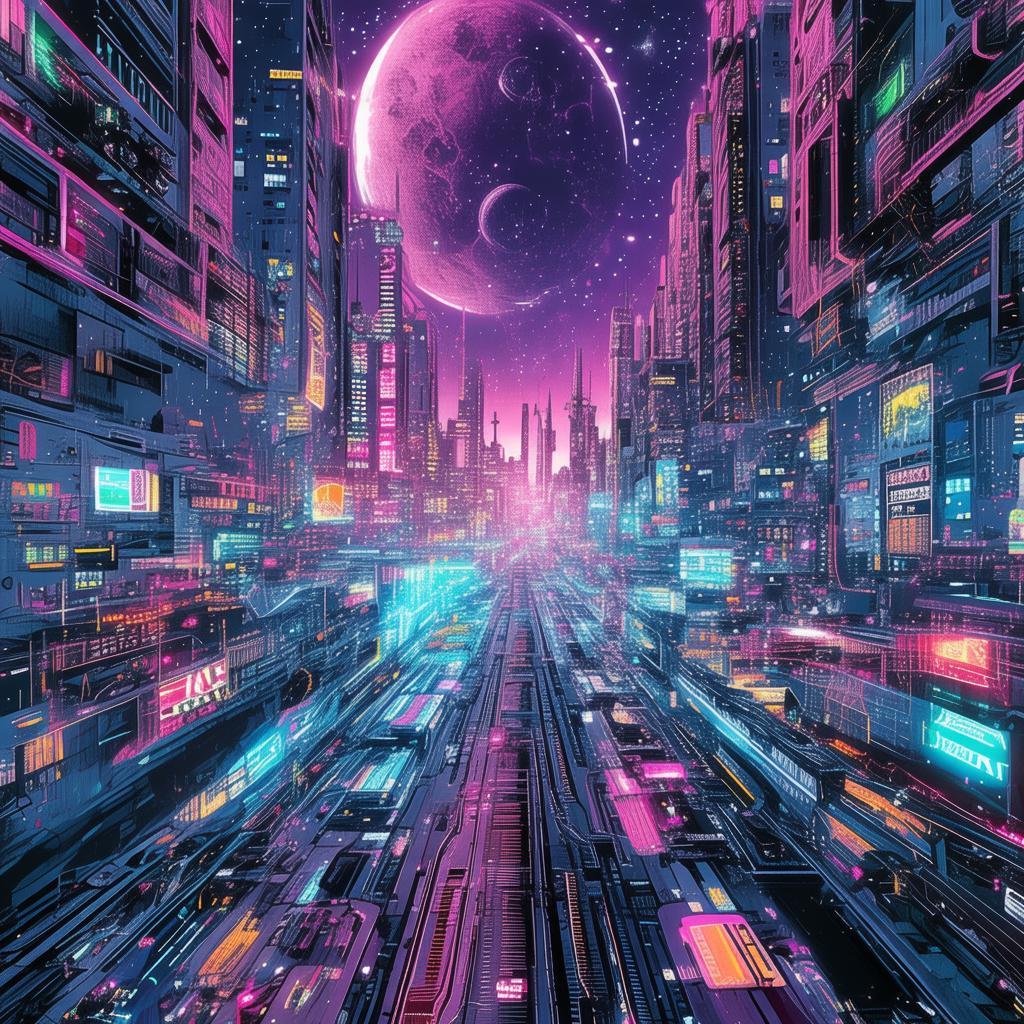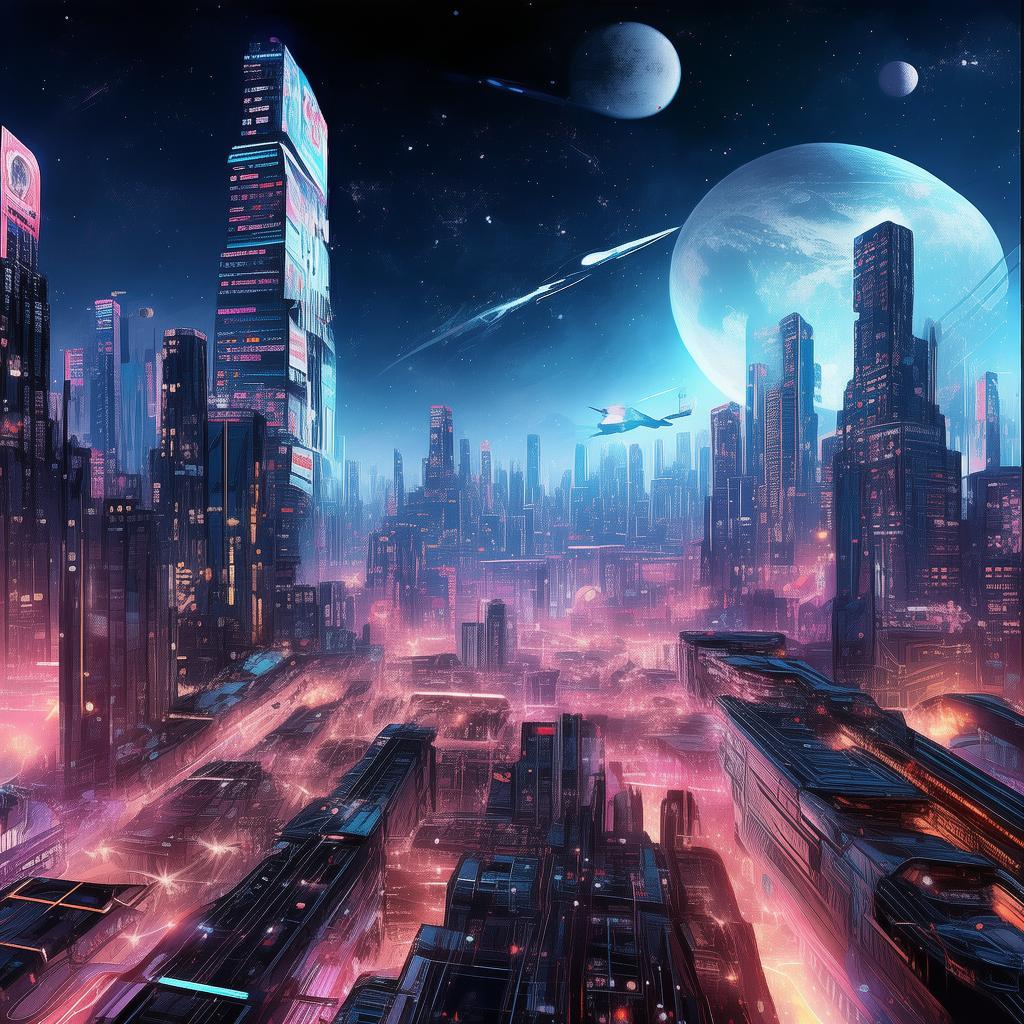Seeds of Utopia: The Chen Xueyuan Dilemma
In the heart of the 22nd century, the Cybernetic Garden was a marvel of human ingenuity. It was a sanctuary where the impossible had become reality, a place where the very essence of life was manipulated to create botanical perfection. The garden was a testament to the work of Chen Xueyuan, a renowned geneticist whose name was synonymous with the most advanced biotechnology in the galaxy.
The Cybernetic Garden was a utopia, a place where every plant was engineered to be disease-free, to grow in any climate, and to produce the most vibrant and beautiful flowers known to man. It was a place where nature and technology had merged seamlessly, and the line between the two was almost unrecognizable.
Chen Xueyuan stood in the center of the garden, her eyes reflecting the glow of bioluminescent flowers. She was surrounded by her creations, the fruits of her labor, the embodiment of her dreams. Yet, as she gazed upon the perfection that lay before her, a shadow passed over her face.
The garden was a marvel, but it was also a product of genetic manipulation on an unprecedented scale. The plants were not just enhanced; they were almost entirely synthetic. The beauty was artificial, the vitality was forced. Chen Xueyuan knew that this was not the natural order of things, but the demand for perfection was insatiable.
Her latest project, the "Botanical Utopia," was a collection of plants that were supposed to represent the pinnacle of her work. They were to be the ultimate blend of nature and technology, a hybrid that would revolutionize the way humans viewed their world. But as she examined them, she couldn't shake the feeling that something was missing.
One evening, as the sun dipped below the horizon, casting a golden hue over the garden, Chen Xueyuan received a message. It was from her oldest friend, Dr. Li, a fellow geneticist who had long since abandoned the path of perfection. The message was simple, yet it cut to the core of Chen's dilemma.

"Chen, I have been watching the Cybernetic Garden. It is a marvel, but it is not life. The plants are too perfect, too inhuman. They are the result of your genius, but they lack something essential. Remember, nature is not about control, but about balance."
The message resonated with Chen. She had been so focused on the pursuit of perfection that she had forgotten the very essence of what she was trying to achieve. The garden was a testament to human ingenuity, but it was also a reminder of the delicate balance that must be maintained in the natural world.
The following days were a whirlwind of activity. Chen Xueyuan began to question the very principles that had guided her work. She realized that the pursuit of perfection had led her to a place where the very essence of life was at risk. The Botanical Utopia was a collection of plants that were more machine than living organism. They were designed to thrive in environments that were not naturally suited to them, to produce flowers that were not meant to exist.
Chen Xueyuan knew that she had to make a choice. She could continue down the path of perfection, pushing the boundaries of genetic engineering to create even more impressive plants. Or she could take a step back, return to the basics, and focus on creating life that was not just beautiful, but also sustainable.
The decision was not easy. The Cybernetic Garden was a symbol of human achievement, a place where the impossible had been made possible. To change it would be to change everything. Yet, Chen Xueyuan knew that the true essence of life was not about control, but about harmony.
She began to experiment with the plants, introducing mutations that would make them more adaptable, more in tune with their environment. She worked tirelessly, her mind racing with ideas, her heart heavy with the weight of her decision. The garden was her baby, and she was about to change its very nature.
As the days turned into weeks, Chen Xueyuan's work began to show results. The plants were growing, but not in the way she had expected. They were not uniform, not perfect. They were varied, diverse, and alive in a way that the original designs had never been. The Botanical Utopia was becoming something new, something more.
One evening, as the sun set over the garden, Chen Xueyuan stood in the center of her creation. The plants around her were not perfect, but they were vibrant, full of life. She looked at the garden and felt a sense of peace that she had not known before. The Cybernetic Garden was still there, but it was different now. It was a blend of the old and the new, a testament to the balance between technology and nature.
Chen Xueyuan smiled as she watched the plants sway gently in the evening breeze. She had made her choice, and the garden was better for it. The Botanical Utopia was not just a collection of plants; it was a reminder of the delicate balance that must be maintained in the natural world. It was a testament to the idea that true beauty comes not from control, but from harmony.
As the stars began to twinkle in the night sky, Chen Xueyuan knew that her work was far from over. The garden would continue to evolve, and so would her understanding of life. But for now, she was content. She had found the balance she had been searching for, and the Cybernetic Garden was once again a place of wonder and beauty, a place where nature and technology could coexist in perfect harmony.
✨ Original Statement ✨
All articles published on this website (including but not limited to text, images, videos, and other content) are original or authorized for reposting and are protected by relevant laws. Without the explicit written permission of this website, no individual or organization may copy, modify, repost, or use the content for commercial purposes.
If you need to quote or cooperate, please contact this site for authorization. We reserve the right to pursue legal responsibility for any unauthorized use.
Hereby declared.









